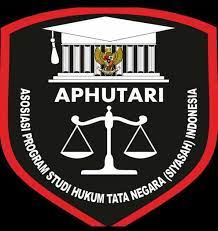Political Culture of Madurese Community in Marriage Law: from the Perspective of Utilitarianism and Structuration Theories and Maqasidi Interpretation
DOI:
https://doi.org/10.15642/ad.2022.12.1.26-50Keywords:
political culture, marriage, Madurese community, law enforcementAbstract
This research delves into marriage law of Madurese community seen from the purview of its culture and nature. The practice of such marriage contravenes the formal restrictions of the legislation concerning marriage as ruled by the state. Several facts show that some marriage norms were spoiled, sparking the popularity of sirri (unregistered) marriage which further leads to istbat nikah and underage marriage that triggers an exemption. This research employed a qualitative method by garnering information from the judges of a religious court, kiai (a respected and religious Javanese expert in Islam), and the members of the public. The primary data were collected from data on unregistered marriage and exemption in marriage. The data were reductively analyzed, discovering that, first, the political culture of the marriage in Madurese community is captured in a particular pattern: 1) political administration is a measure taken to manipulate the administrative process; 2) political prevention is defined as a legal objective (maslahah, avoiding the likelihood of sharia violations with the basis of hifdz an-nasb) which is a milestone of a legal politics referred to by people, 3) political family and political culture were shaped by the people’s view believing that securing familial relationships from breaking is far more important than what the legislation regulates, 4) political authority represents the presence of a kiai that works like a shield and an escape thoroughfare from the law of the state for the sake of the tradition; second, 1) from the aspect of utilitarianism, there is a point at which political culture of Madurese community and justice meet, 2) the structuration theory views political culture in Madurese community as inevitability, involving religious roles, public, and legal materials, and 3) within maqasidi scope, a law enforcement is seen as preventive (dar’u al-mafasid) as congruent with the aspect of lawmaking objective.
Downloads
References
Bachtiar, Sri Wayhuni; Ma’ruf Hafidz; Dechran S. Busthami, “Permohonan Dispensasi Perkawinan setelah Berlakunya Undang-Undang Nomor 16 tahun 2019 Perubahan atas Undang-Undang Nomor 1 Tahun 1974 tentang Perkawinan”, Journal of Lex Generalis (JLS) 2, 3 (2021): 1162-1174.
Badri, Mohammad Manaf. “Kedudukan Kiai sebagai Wali Muhakkam dalam Pernikahan Perspektif Maslahah Mursalah dan Kompilasi Hukum Islam”, Sakina: Journal of Family Studies 4, 3(2020): 6-7.
Basuki, Zulfa Djoko. “Teori-Teori Umum Hukum Perdata International yang Dapat Mengesampingkan Berlakunya Hukum Asing dengan Memberlakukan Hukum Nasional sang Hakim”, Jurnal Hukum dan Pembangunan 26, 3(2016): 200-2002.
Bisri, Cik Hasan. Pilar-Pilar Penelitian Hukum Islam dan Pranata Sosial (Jakarta : Grafindo Persada, 2004), 56.
Burhanuddin, Sisca Ferawati. “Civil Law and Juridical Aspects in the Distribution of Marriage Joint Property”, Budapest Inernational Research and Critics Institute (BIRCI-Journa) 4, 3(2021): 34.
Carr, Alan. Positive Psychology the Science of Happiness and Human Strengths (USA and Canada: Brunner, 2004, 42.)
Cholili, Achamad. “Urgensi dan Relevansi al-Maslahah al-Mursalah sebagai Metode Ijtihad Kontemporer”, at-Tahdzib 1, 2(2013), 204-207.
Damanik, Amsari “Implikasi Pembatasan Usia Perkawinan terhadap Dispensasi Kawin”, Jurnal Syintax Transformation 2, 8(2021): 1068.
Faiz, Abd Aziz. “Pola Logika Nikah Sirri dalam Kultur Masyarakat Madura”, Musawa 12, 1(2016): 122-123.
Fauzan, “Professive Paradigm in Islamic Law Renewel in Indonesia”, MIZANI: Wacana Hukum, Ekonomi dan Keagamaan 7, 2(2020): 191-192.
Friedman, W. Teori dan Filsafat Hukum: Idealisme Filosofis dan Problema Keadilan, Muhamad Arifin (Terj.) (Jakarta: Rajawali Press, 1990), 111.
Hasan, Husain Hamid. Nadzariyyah al-Maqasidi fi al-FIqh al-Islam (Kairo: Dar an-Nahdhah al-‘Arabiyah, 1971), 304.
Ilma, Mughniatul. “Regulasi Dispensasi dalam Penguatan Aturan Batas Usia Kawin bagi Anak Pasca Lahirnya UU No. 16 Tahun 2019”, al-Manhaj: Jurnal Hukum dan Pranata Sosial Islam 2, 2(2020): 137.
Itmam, Muhammad Shohibul. “Indonesian Jurisprudence Ahmad Qadri Azizy’s Perspective”, Justicia Islamica 16, 2(2019): 18-19.
Khamidyah, Nur. “Isbat (Marriage Determination) in Sirri Marriage in the Form of Komplikasi Hukum Islam According Maqasid as-Shari’ah” Sharia: Journal of Indonesian Comparative of Sharia Law 3, 1(2020): 3-4.
Limas Dodi, “POWER-BASED ECONOMIC POLITICS IN PERSATUAN ISLAM (PERSIS) IN SAPEKEN, SUMENEP-MADURA,” Madania: Jurnal Kajian Keislaman 25, no. 1 (2021): 14, http://dx.doi.org/10.29300/madania.v25i1.4226.
Magee, Bryan. the Stoty of Philosophy, Marcus Widodo (Terj.) (Yogyakarta: Kanisius, 2012), 184.
Marzuki, Peter Mahmud. Penelitian Hukum, Cet. Ke-7 (Jakarta: Kencana, 2011), 132.
Munawar, Said Aqil Husin. Hukum Islam dan Pluralitas Sosial (Jakarta: Paramadani, 2004), 7.
Nurfitriani Nurfitriani, Suparman Abdullah, and Buchari Mengge, “Conflict and Violence among Religious People: A Case Study of Conflict and Violence Against the Ahmadiyah Congregation in Makassar City,” International Journal of Multicultural and Multireligious Understanding 7, no. 11 (January 2, 2021): 497, https://doi.org/10.18415/ijmmu.v7i11.2280.
Rahardjanto; N. Nurwidodo, “Implementasi Teknologi Tepat Guna untuk Mengatasi Permasalahan IRT Ramuan Madura di Kabupaten Sumenep”, International Journal of Community Service Learning 3, 4(2020): 173–185. https://doi.org/10.23887/ijcsl.v3i4.21788
Sudarman Sudarman and Mohammad Hidayaturrahman, “RELATION OF RELIGION, ECONOMY AND POLITICS: Islamization of Malay Community through Trade and Kingdom,” Al-Tahrir: Jurnal Pemikiran Islam 20, no. 2 (June 20, 2020): 175–94, https://doi.org/10.21154/altahrir.v20i2.2007.
Tabrani ZA, “The Theological Transformation of Indonesian Democratic Politics. (Telaah Singkat Tentang Masyarakat Madani Dalam Wacana Pluralisme Agama Di Indonesia),” AL-IJTIMA’: International Journal of Government and Social Science 2, no. 1 (2016).
Tambunan, Khairani Amalia; Sriono Sriono; Risdalina Siregar, “Legal Respect for Children from Sirri’s Marriage in the Perspective of Islamic Marriage Law and Reglations Indonesian Law in the District Labuhanbatu”, Budapest International Research and Critics Institute (BIRCI-Journal): Humanities 4, 2(2021): 2043-2052.
Umiarso El-Rumi, “The Young Kyai (Lora) and Transformation of the Pesantren in Madura,” Islam Realitas: Journal of Islamic and Social Studies 6, no. 2 (December 31, 2020): 121, https://doi.org/10.30983/islam_realitas.v6i2.3484.
Usman, Rachmadi. “Makna Pencatatan Perkawinan dalam Peraturan Perundang-Udnangan Perkawinan di Indonesia”, Jurnal Legislasi Indonesia 14, 3(2017): 259.
Zahrah, Muhammad Abu. Ushul FIqh (Jakarta: Pustaka Firdaus, 2003), 548.
Zakiyah Zakiyah, “Manuscripts in Sumenep Madura; the Legacy of Pesantren and Its Ulama,” Heritage of Nusantara: International Journal of Religious Literature and Heritage 6, no. 1 (June 30, 2017): 21–42, https://doi.org/10.31291/hn.v6i1.133.
Downloads
Published
How to Cite
Issue
Section
License
Copyright (c) 2022 Al-Daulah: Jurnal Hukum dan Perundangan Islam

This work is licensed under a Creative Commons Attribution-ShareAlike 4.0 International License.





